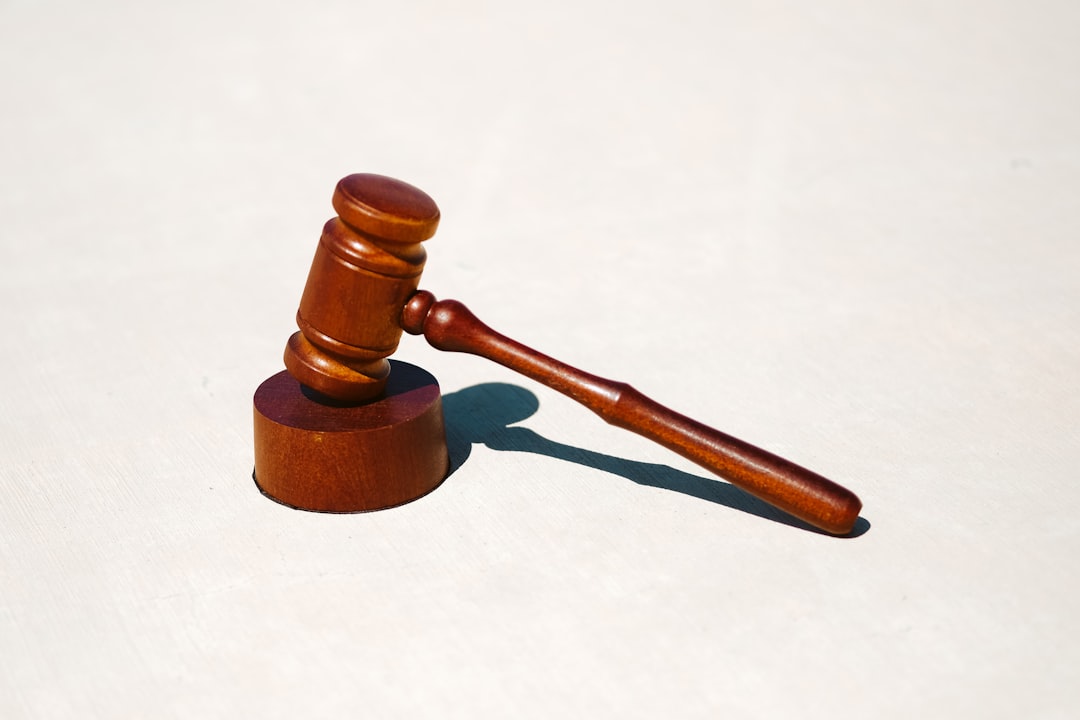In Maryland, the Telephone Consumer Protection Act (TCPA) protects seasonal workers from unwanted phone calls, including spam. With automated systems targeting vulnerable workers, a specialized lawyer for TCPA Maryland is vital to navigate regulations and mitigate legal issues. These attorneys help employers comply with TCPA guidelines, providing guidance to stop nuisance calls and text messages. Seasonal workers affected can seek compensation through fines against violators, up to $1500 per call, and ensure their rights are protected. Solutions include enhanced communication channels, verification systems, technological advancements, and stricter penalties for violators.
In Maryland, seasonal workers face an unexpected challenge: spam calls. This growing issue, exacerbated by technological advancements, has significant implications for a workforce already navigating temporary employment. Understanding the Telephone Consumer Protection Act (TCPA) is crucial, as it offers legal protection against unwanted calls. This article explores the prevalence of spam calls targeting these workers, their negative impact, and the legal avenues available through a lawyer for TCPA Maryland to seek compensation. We also delve into preventative measures and future solutions to combat this modern nuisance.
Understanding the Telephone Consumer Protection Act (TCPA) in Maryland

In Maryland, the Telephone Consumer Protection Act (TCPA) plays a crucial role in regulating unwanted phone calls, including spam calls targeting seasonal workers. This federal law, enforced by the Federal Communications Commission (FCC), sets strict guidelines for telemarketing practices to protect consumers from nuisance calls and text messages. A lawyer for TCPA Maryland can help explain these rules and ensure businesses comply with them.
The TCPA restricts automated telephone dialing systems and prerecorded messages, except under specific circumstances, such as when the caller has obtained prior express consent from the recipient. Violations of this act can result in significant fines, making it essential for employers, especially those hiring seasonal workers, to be aware of their responsibilities. Seeking legal advice from a TCPA lawyer Maryland can help businesses navigate these regulations and protect themselves from potential legal issues.
The Prevalence of Spam Calls Targeting Seasonal Workers

In today’s digital age, spam calls have become a pervasive issue, particularly targeting Maryland’s seasonal workers. With the rise of automated phone systems, unscrupulous businesses and individuals are utilizing Telephone Consumer Protection Act (TCPA) violations to make unsolicited calls en masse. These unwanted interactions often occur during peak hiring seasons when workers are most vulnerable, making it crucial for residents to be aware of their rights. Many end up facing annoying interruptions, misleading marketing tactics, and even fraudulent schemes disguised as legitimate job opportunities.
Seasonal workers, eager to secure employment, may find themselves falling victim to these spam calls, leading to a frustrating experience. Unfortunately, the ease of automated dialing makes it challenging for law enforcement to track down perpetrators. This is where a lawyer specializing in TCPA Maryland can step in, providing guidance and legal recourse for those affected. Understanding their rights under the TCPA is essential for workers to combat this modern-day nuisance effectively.
How Spam Calls Affect Maryland's Seasonal Workforce

Spam calls, or unsolicited telephone marketing calls, have become a significant nuisance and challenge for Maryland’s seasonal workforce. These relentless calls often disrupt workers’ routines, especially during peak hiring seasons when many residents are actively seeking employment opportunities. With the rise of automated dialer technology, spam callers can target thousands of numbers simultaneously, making it difficult for seasonal workers to screen or block these calls effectively.
The impact is twofold: first, it causes significant frustration and distress among workers, who may feel their time is being wasted or invaded. Second, constant interruptions can hinder their ability to focus on job searches, interviews, or training sessions, potentially delaying their transition into new roles. Seasonal workers in Maryland often rely on these employment opportunities, and any disruption can be detrimental to their financial stability and overall well-being. As such, there is a growing need for awareness and protection, with many turning to a TCPA lawyer in Maryland for assistance against these intrusive practices.
Legal Recourse for Victims: Seeking Compensation as a Lawyer for TCPA Maryland

In Maryland, victims of spam calls have legal recourse and can seek compensation through the Telephone Consumer Protection Act (TCPA). As a lawyer for TCPA Maryland, we assist seasonal workers who have been affected by unsolicited phone marketing calls, often receiving hefty fines against violators. The TCPA allows individuals to file lawsuits against companies or individuals who make or cause these unwanted calls, aiming to stop the harassment and recover damages.
Victims can seek statutory damages of up to $500 per call, with triple damages if it’s shown that the violator willfully or knowingly violated the act. Our legal team helps navigate this process, ensuring that seasonal workers in Maryland understand their rights and receive the compensation they deserve. We guide clients through filing a claim, gathering evidence, and presenting their case to secure favorable outcomes.
Preventative Measures and Future Solutions to Combat Spam Calls

To combat spam calls, several preventative measures and future solutions can be employed. One effective strategy involves enhancing communication channels. Seasonal workers in Maryland can benefit from educational initiatives that raise awareness about the potential risks associated with unknown numbers. Encouraging them to block or report nuisance calls can significantly reduce unwanted contact. Additionally, implementing robust verification systems for new contacts can act as a barrier against automated spam call technologies.
Future solutions include legislative updates and technological advancements. Maryland residents could benefit from stricter regulations and penalties for telemarketers who violate the Telephone Consumer Protection Act (TCPA). Moreover, innovative technologies that identify and block spam calls before they reach individual devices are becoming increasingly available. Engaging with a lawyer for TCPA Maryland can provide guidance on navigating these legal protections and exploring technological options to create a more secure communication environment.






